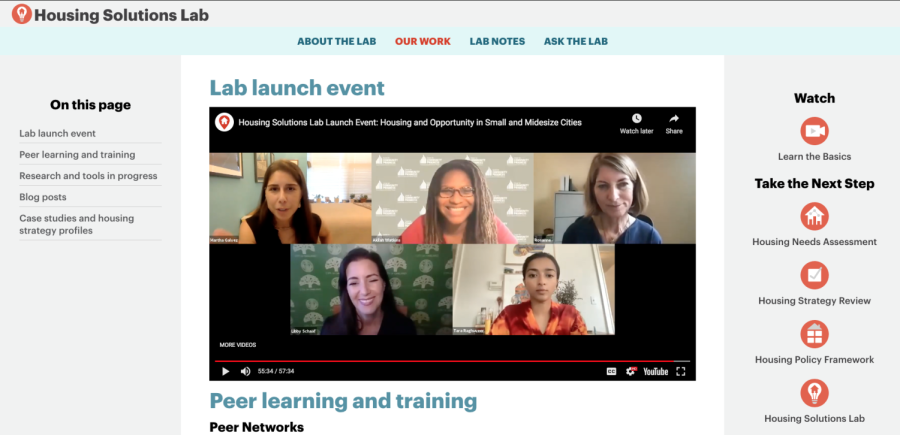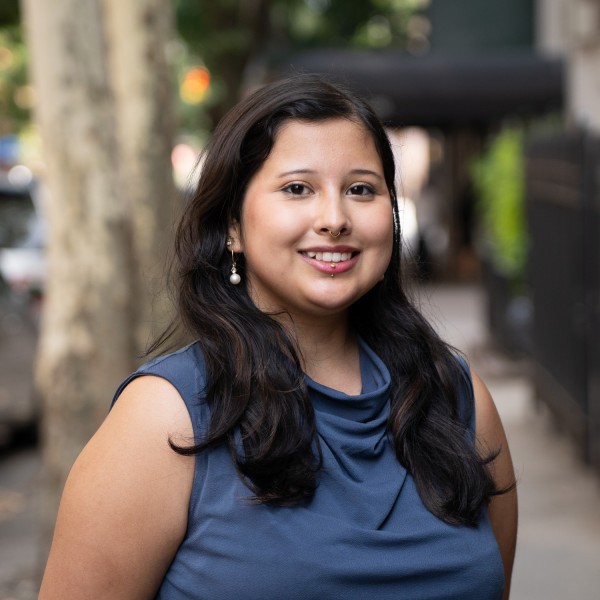NYU Furman Center lays foundations for affordable housing
The Furman Center’s Housing Solutions Lab announced its second Peer Cities cohort, which aims to improve the affordability and equality of housing in small to mid-sized cities.
The Housing Solutions Lab at NYU’s Furman Center is launching its second Peer Cities Network cohort, aiming to improve housing quality and address housing affordability and security in cities across the United States. (Image courtesy of the Housing Solution Lab)
April 20, 2022
The Housing Solutions Lab at NYU’s Furman Center, an institute for public policy research, announced its second Peer Cities Network cohort on March 24. The cohort, which officially began on March 28, brings together leaders from nine cities across the United States to promote racial and economic equity in local housing policy.
The participating cities include Evanston, Illinois; Missoula, Montana; Pasco, Washington; Pawtucket/Central Falls, Rhode Island; Portland, Maine; Rochester, New York; San Marcos, Texas; and Cedar Rapids and Des Moines in Iowa. Jessica Wunsch, the housing lab’s program manager, said the network is meant to provide a place for housing industry leaders and city officials to address issues that are important to them.
“City folks that are working on housing want to be in touch with one another and have opportunity to exchange ideas, and really just hear from each other about what they’re doing, what works, what their challenges have been, and how they’ve been able to overcome some challenges in implementing local housing policies,” Wunsch said.
Housing leaders will meet monthly to discuss new methods to address longstanding issues with housing such as affordability and racial equity. They will also receive technical assistance and have access to informational panels hosted by the Furman Center. The cohort will meet monthly through December 2022.
The inaugural Peer Cities Cohort was created in 2021 and aimed to address housing policies and emergency rental assistance, among other housing issues. Wunsch said the inaugural cohort worked together on pandemic recovery efforts, focusing on finding funds to prevent evictions.
“We were able to learn a lot of lessons through that experience, and the cities were really able to connect with one another in a time that was really challenging for them,” Wunsch said. “I would say it was very successful.”
Matthew Grooms, a senior planner of the city of Portland, Maine, said he is looking forward to collaborating with other cities and using the resources the lab provides. He said that Portland plans on combating rising rent costs through rezoning policies and making affordable housing more readily available.
“We are well aware of the Furman institute’s, and by extension, the Housing Solutions Lab’s expertise in the area of housing policy … that would be instrumental in evaluating and refining Portland’s policies,” Grooms said. “We look forward to developing lasting partnerships with these communities that will hopefully extend far into the future, and far beyond housing policy exclusively.”
The network is also seeking to address affordability issues caused by an influx of new residents in San Marcos, Texas. Since 2010, the population of San Marcos has grown by nearly 52%, and rent prices have increased from $637 for a studio apartment in December 2019 to over $920 as of April this year.
Carly Chen, a student at Texas State University, located in San Marcos, was pushed out of her apartment due to rent increases.
“Prices are increasing every year, even though I’ve been at the same apartment for two years, causing me to move out to a different complex this summer,” Chen said. “I’ve seen some people move further away to then commute or go online due to the increasing prices.”
Wunsch said that the Peer Cities Network can play a role in making rent costs more affordable. One of the problems San Marcos faces is convincing political agents to take action regarding housing, she said.
“In addition to general affordability challenges, and the planning issues that they’re facing there with the growing population, it’s really helping them to kind of build the political case for why these changes are important and should be adopted,” Wunsch said.
She said that although local governments often support providing equitable housing, projects like the one hosted by the Housing Solutions Lab help lay the foundations for realizing affordable housing plans.
Contact Tori Morales at [email protected].

























































































































































